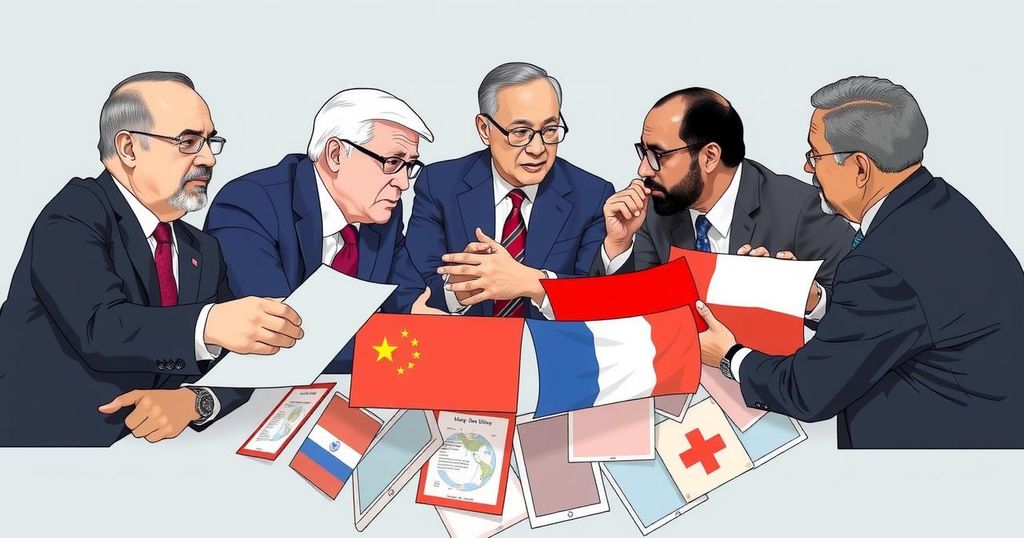Trump’s Controversial Comments Reflect a Broader Strategic Vision

President-elect Donald Trump has made controversial comments regarding Canada, Greenland, and the Panama Canal, hinting at trade wars and gesturing towards potential territorial claims. His team’s assertions indicate these remarks are part of a larger diplomatic strategy intended to reshape America’s foreign relations and influence with neighboring countries.
In recent weeks, President-elect Donald Trump has made a series of controversial remarks regarding international relations, specifically concerning the United States’ nearest neighbors. He has hinted at potential trade conflicts with Canada and Mexico while also speculating about acquiring Greenland and reestablishing control over the Panama Canal. Additionally, Trump suggested the notion of integrating Canada as the 51st state, indicating a significant shift in America’s diplomatic stance toward these nations. Experts within Trump’s circle assert that these statements reflect a broader strategic agenda aimed at redefining the United States’ role on the global stage shortly after his upcoming inauguration.
The geopolitical ramifications of Trump’s comments cannot be understated. Historically, diplomatic relations among North America, particularly with Canada and Mexico, have been cordial. Moreover, the status of Greenland and the Panama Canal holds significant historical and economic importance. Trump’s remarks signify an aggressive foreign policy approach, which may resonate with his core supporters who advocate for a more nationalistic agenda. Understanding these shifts is essential for grasping the potential implications for America’s neighbors and international alliances.
In summary, President-elect Donald Trump’s recent statements about trade, territorial ambitions, and statehood for Canada underscore a potentially radical departure from traditional U.S. foreign policy. As his administration prepares to take office, the focus will likely shift to how these proposals will be operationalized and the ensuing reactions from Canada, Mexico, and other global leaders. The broader strategy behind these comments, as suggested by his team, remains to be clarified as they navigate these complex diplomatic waters.
Original Source: www.washingtonpost.com








